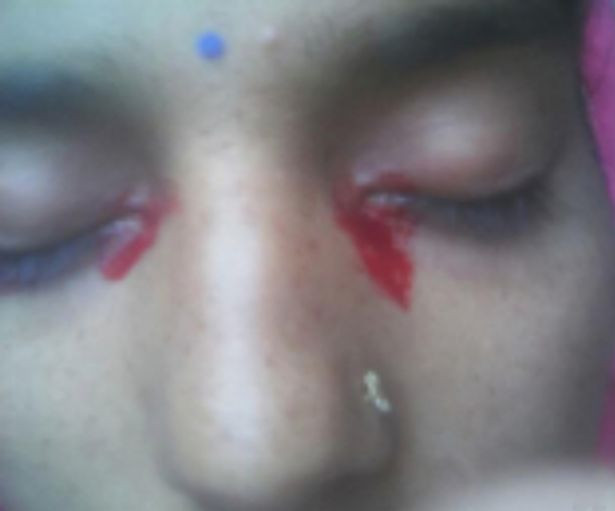Metro
Housewife, 25, shocks doctors as she bleeds from eyes during period

A 25-year-old housewife from Chandigarh, India, has been diagnosed with haemolacria, a condition which causes a person to produce tears that are partially composed of blood.
The woman who was on her period shocked doctors when she started crying and instead of watery tears, blood started coming out of her eyes.
In a bid to help her, she was taken to the city’s Post-Graduate Institute of Medical Education and Research, Dailystar reports.
Dr Soumitra Ghosh, who documented the case in a new study, said:
“Haemolacria means bloody tears. Patients will have blood coming out from one or both eyes.
“Blood coming out with tears is a very alarming clinical entity both for the patient and physician. If you see blood coming out from the eyes, you can imagine how scary a situation it is.
“Haemolacria is a rare clinical condition. It has multiple causes. One of the causes is vicarious menstruation.
“Vicarious menstruation is defined as cyclical bleeding in other extrauterine organs like the nose, eyes, ears, intestine, lungs, nipples and skin.
“Haemolacria due to vicarious menstruation is very, very rare. Only a few cases have been reported in the medical literature so far.”
The exact cause of the condition is uncertain, but doctors think the fact that the patient was menstruating at the time could be important.
Dr Gosh explained how the condition appears to be the eyes’ blood vessels responding to hormonal changes in the body.
He continued:
“Certain ocular and orbital tissues are seen to be hormonally responsive.
“Oestrogen and progesterone can increase the permeability of the capillaries resulting in hyperemia, congestion and secondary bleeding from extrauterine tissue.”
The patient was treated with oral oestrogen-progesterone contraceptive pills (combined pill).
On her three month follow-up, the patient was on these pills and she’d had no repeat of the episode.
































